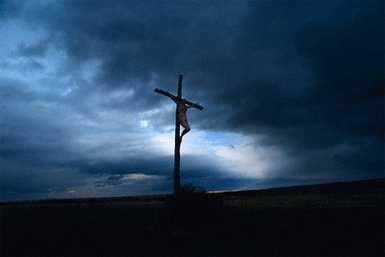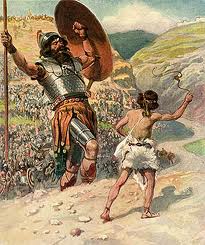Dancing With the Scars
 Monday, October 1, 2012 at 07:21AM
Monday, October 1, 2012 at 07:21AM  “The joy of our heart is ceased; our dance is turned into mourning.” Lamentations 5:15
“The joy of our heart is ceased; our dance is turned into mourning.” Lamentations 5:15
“I will glory of the things which concern mine infirmities.” 2 Corinthians 11:30
This title is, of course, a play on the wildly popular television program called “Dancing with the Stars.” I don’t watch it, but, as a consumer of the daily news, I can hardly avoid reading or hearing about it. Other than the rhyme of scars with stars, there is little that this message has in common with the program. Except, that is, the idea of dancing—an act of celebration, of rejoicing, an expression of a festive attitude—but, in this case, there seems to be little reason to do so. Dancing with scars appears strangely out of place, even oxymoronic. Ordinarily, scars do not suggest joyful dancing. Rather, scars are ugly, evoking a sense of shame, of hurt, of bitterness, and perhaps of revenge. Scars represent pain, whether past or present; if not physical pain, then emotional, psychological or spiritual pain.
But the scripture text I read to you suggests something very different than the ordinary reaction or response to hurt. Paul had a perspective on his scars that must have baffled his enemies and angered the devil, but inspired the church.
“I will glory of the things which concern mine infirmities.”
He was saying to the world, “Go ahead. Look at my wounds; look at my losses; look at my defeats in the human realm; you may think they will make me depressed, angry and feeling victimized. You may expect that I am going to quit or crack up. But you would be mistaken. I view them with a sense of glory, of honor, of gratitude that I am counted worthy to suffer for His namesake.” But let Paul tell his own story.
14 But God forbid that I should glory, save in the cross of our Lord Jesus Christ, by whom the world is crucified unto me, and I unto the world. 15 For in Christ Jesus neither circumcision availeth any thing, nor uncircumcision, but a new creature. 16 And as many as walk according to this rule, peace be on them, and mercy, and upon the Israel of God. 17 From henceforth let no man trouble me: for I bear in my body the marks of the Lord Jesus. 18 Brethren, the grace of our Lord Jesus Christ be with your spirit. Amen. Galatians 6:14-18 (KJV)
Paul had physical evidence of his devotion to Christ.
“Are they ministers of Christ? (I speak as a fool) I am more; in labors more abundant, in stripes above measure, in prisons more frequent, in deaths oft. 24 Of the Jews five times received I forty stripes save one. 25 Thrice was I beaten with rods, once was I stoned, thrice I suffered shipwreck, a night and a day I have been in the deep; 26 In journeyings often, in perils of waters, in perils of robbers, in perils by mine own countrymen, in perils by the heathen, in perils in the city, in perils in the wilderness, in perils in the sea, in perils among false brethren; 27 In weariness and painfulness, in watchings often, in hunger and thirst, in fastings often, in cold and nakedness. 28 Beside those things that are without, that which cometh upon me daily, the care of all the churches. 29 Who is weak, and I am not weak? who is offended, and I burn not? 30 If I must needs glory, I will glory of the things which concern mine infirmities.” 2 Corinthians 11:22-30
Let me pause here with a message and a note of warning to twenty-first century Christians. We are living in a age when the very meaning of Christianity is under attack, both outside and inside the church. We still talk about the cross, but we have lost much of the meaning of the cross. We want ease, comfort and pleasant surroundings. Many church-goers today want the temperature just right, the length of service geared to their expected dismissal time, the music not too old-fashioned—but not too contemporary either, the sermon the right mixture of scripture and humor and profound spiritual insight (all within fifteen to eighteen minutes), and coffee and donuts to boot. We are led to expect comfort, not pain; all joy, no sorrow; roses without thorns; blessings without trials; privileges without responsibilities; and provision without sacrifice.
I cannot promise any of those things. I can promise you, however, that even if the temperature is too hot or too cold; the music too far out or too traditional; the service too long or too short; the sermon too shallow or too deep; that you can have grace through it all. I can promise you that if you have to walk through the valley of the shadow of death, look around you. You will see the Good Shepherd walking right beside you!
“And lest I should be exalted above measure through the abundance of the revelations, there was given to me a thorn in the flesh, the messenger of Satan to buffet me, lest I should be exalted above measure. 8 For this thing I besought the Lord thrice, that it might depart from me. 9 And he said unto me, My grace is sufficient for thee: for my strength is made perfect in weakness. Most gladly therefore will I rather glory in my infirmities, that the power of Christ may rest upon me. 10 Therefore I take pleasure in infirmities, in reproaches, in necessities, in persecutions, in distresses for Christ’s sake: for when I am weak, then am I strong.” 2 Corinthians 12:7-10
But, what about scar tissue? Let me tell you something about scar tissue from a medical perspective.
Scar tissue replaces normal skin tissue after the skin is damaged. Scar tissue is made up of the same substance as undamaged skin, but it looks different because of the way the fibers in the tissue are arranged. Scars form every time the skin is damaged beyond its first layer. There is no way to remove scars entirely.
When life hurts you, you cannot avoid some kind of permanent scarring over your wound. Even after the pain is gone, the scar will always be a reminder of where you suffered your injury. You can either look at it as an ugly reminder of a devastating blow in your life, or you can see it as evidence of God’s healing power.
If the injury is more serious and breaks the skin surface, connective tissue, known as fibroblasts spread and fill the wound. These are scar tissue cells, comprised of fibrils that are tough and very strong. They lack the characteristics of the skin they replace. They are not as flexible, are less sensitive, and are missing other features such as hair and sweat glands.
After you have come through a trial, you will be different in some way. Otherwise, what would be the purpose of the trial? You’re going to come out of it with some scar tissue. You won’t be as flexible to move around as you once were. You will lose some properties of the flesh that you never thought you could live without. But here is what Jesus said:
“If any man will come after me, let him deny himself, and take up his cross daily, and follow me. 24 For whosoever will save his life shall lose it: but whosoever will lose his life for my sake, the same shall save it. 25 For what is a man advantaged, if he gain the whole world, and lose himself, or be cast away?” Luke 9:23-25
Remember Jacob? He wrestled all night long with the Angel of the Lord. The angel touched Jacob’s thigh and put it out of joint. Jacob left the wrestling match with a limp that he had for the rest of his life. Was he bitter about it? Was he angry with God for hurting him? Was the scar the most important thing he remembered about that night?
No! Ask Jacob about his limp and his eyes would well up with tears of joy. “Let me tell you about my wound. That was when I received my greatest blessing from God!”
“And he said unto him, What is thy name? And he said, Jacob. 28 And he said, Thy name shall be called no more Jacob, but Israel: for as a prince hast thou power with God and with men, and hast prevailed. 29 And Jacob asked him, and said, Tell me, I pray thee, thy name. And he said, Wherefore is it that thou dost ask after my name? And he blessed him there. 30 And Jacob called the name of the place Peniel: for I have seen God face to face, and my life is preserved.” Genesis 32:27-30.
Brother Gary Erickson, our former General Sunday School Director wrote a book several years ago entitled “Thorns and Crowns.” In one of the chapters, he asks a very intriguing question: “Did Jesus retain His scars after the resurrection?” I had never thought about it in those exact terms. Somehow, I always had the idea that after the resurrection, everything about Jesus was restored to its perfect condition. But, after thinking about it, I had to answer yes. Jesus still had His scars.
“And after eight days again his disciples were within, and Thomas with them: then came Jesus, the doors being shut, and stood in the midst, and said, Peace be unto you. 27 Then saith he to Thomas, Reach hither thy finger, and behold my hands; and reach hither thy hand, and thrust it into my side: and be not faithless, but believing. 28 And Thomas answered and said unto him, My Lord and my God.” John 20:26-28
After his resurrection, Jesus joined two disciples on the road to Emmaus. They started talking about what had happened in Jerusalem concerning the crucifixion. Jesus, as though he didn’t know, asked them about it all. They were in disbelief that he hadn’t heard the news. They did not recognize Jesus.
“And the one of them, whose name was Cleopas, answering said unto him, Art thou only a stranger in Jerusalem, and hast not known the things which are come to pass there in these days? 19 And he said unto them, What things? And they said unto him, Concerning Jesus of Nazareth, which was a prophet mighty in deed and word before God and all the people: 20 And how the chief priests and our rulers delivered him to be condemned to death, and have crucified him. Luke 24:18-20
Jesus then began to tell them the background of the scriptures and how they told of himself. Still, they had no idea who he was. The day grew long.
28 And they drew nigh unto the village, whither they went: and he made as though he would have gone further. 29 But they constrained him, saying, Abide with us: for it is toward evening, and the day is far spent. And he went in to tarry with them. 30 And it came to pass, as he sat at meat with them, he took bread, and blessed it, and brake, and gave to them. 31 And their eyes were opened, and they knew him; and he vanished out of their sight. Luke 24:28-31
When did they recognize Jesus? When he took the bread and brake it. It was his hands. They saw his hands. They saw the nailprints. That’s when they recognized him! You may not know Jesus by his face. You may not know him by his voice or his words. But the scars will tell the story. When he shows you his scars, you will know him.
Fanny Crosby, author of 8,000 hymns, was blind. Someone asked her how she would know Jesus if she saw him. As an answer, she wrote this hymn:
I shall know him.I shall know him.
And redeemed by his side I shall stand.
I shall know him.I shall know him.
By the prints of the nails in his hands.
I shall never forget this couple in our church, Ron and Diane Vancena. In 2007, right after they lost their 23 year old son, David, to a freakish heart condition, they came to church on a Sunday morning. I saw Brother Ron come to the front of the sanctuary. I expected him to fall over the altar bench, weeping and sobbing, overcome with grief. I was shocked and amazed at what I saw. I saw Ron, slowly at first, begin to dance before the Lord. His wife, Diane, joined him. Minute after minute passed until this entire church was on its feet worshipping and praising God. Heavy hearted, crushed, devastated, still they danced on. You see, if you dance when you’re happy, that’s one thing. But, when you can dance even though you’re crying so hard you can’t see straight, that’s something else.
Someone said, “Life is not about learning to survive the storm, but rather learning how to dance in the rain.” Bart Millard wrote:
Surrounded by your glory, what will my heart feel?
Will I dance for you, Jesus, or in awe of you be still?
Will I stand in your presence or to my knees will I fall?
Will I sing hallelujah? Will I be able to speak at all?
I can only imagine. I can only imagine.
Will you dance with your scars? Will the joy within you rise higher than the pain outside of you?
12 Beloved, think it not strange concerning the fiery trial which is to try you, as though some strange thing happened unto you: 13 But rejoice, inasmuch as ye are partakers of Christ’s sufferings; that, when his glory shall be revealed, ye may be glad also with exceeding joy. 1 Peter 4:12-13




